Showing results 41-50 of 158 for accessible technologies
Search results
-
Podcast
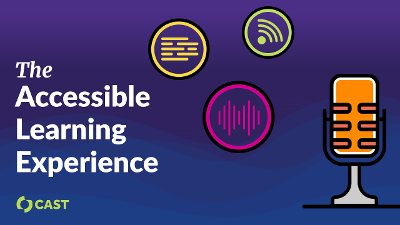
National AEM Center at CAST, 2022
In this episode, Carson Cochran, from the Georgia Department of Education, and Somer Smith, from Marietta City Schools, share the insights and lessons they have learned through their collaboration as part of the National AEM Cohort.
-
Presentation
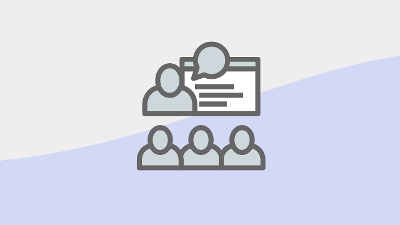
2:30PM – 3:00PM ET on Friday, May 19, 2023
Join us as we take a deep dive into the why of accessibility and leave with loads of FREE digital resources to support inclusive environments for ALL!
-
Presentation
2:45PM – 4:00PM MT on Monday, June 3, 2024
Come join the fun as CAST's TA Specialists at the National AEM Center clarify the concepts and relationships of accessible materials, assistive technology, and technology for supporting students with disabilities. Presenters will share resources and best practices for implementing them, and facilitate discussions and reflections among participants to help them apply the knowledge to their own contexts.
-
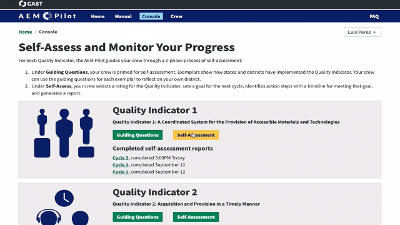
The AEM Pilot is an interactive web-based tool that guides K-12 districts and states to become more inclusive learning spaces for students with disabilities. Building background knowledge about accessible educational materials and technologies, conducting self-assessments, and monitoring continuous progress are all facilitated by the AEM Pilot.
-
Presentation
4:30PM – 5:30PM ET on Thursday, January 25, 2024
Accommodating individuals with disabilities using assistive technologies can be beneficial in a wide variety of job settings. In this session, speakers in the Transition and Workplace Accessibility Strand are invited to introduce themselves and provide a preview of their presentation.
-
Webinar
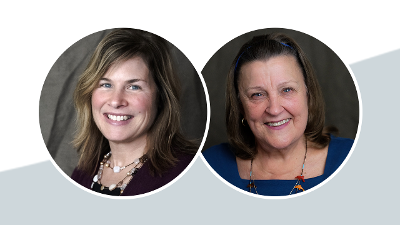
3:00PM – 4:00PM ET on Monday, May 11, 2020
Join us for this webinar as we take a deep dive into (1) distinguishing the meanings of "accessibility" and (2) clarifying what it means in the context of access for students with disabilities.
-
Presentation
11:30AM – 12:30PM CT on Monday, March 4, 2024
Clusive, a UDL-designed digital reader that provides personalized, adaptive preferences and supports to aid in accessing and comprehending textual content across any content area;
-
Presentation

4:00PM – 5:30PM ET on Thursday, July 21, 2022
Perspectives and recommendations will be provided on how to use the Quality Indicators to educate institutional leadership on the cross-cutting effort required to create a coordinated system for providing accessible materials and technologies.
-
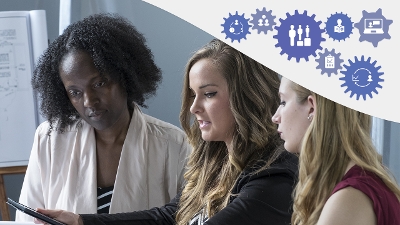
Explore the coordinating systems needed for Workforce Development and learn how to develop or revise a workforce development system to address best practices for the provision of accessible materials and technologies.
-
Presentation

9:20AM – 10:20AM ET on Thursday, January 30, 2020
Learn how to make self-created K-12 and higher ed STEM curriculum materials - including documents, graphics, and videos - accessible to all learners. The four accessible design principles of POUR will be applied to STEM-related course content through a series of material makeover demonstrations. Common examples of materials created by K-12 and higher ed STEM faculty will be first displayed in traditional formats, followed by POUR-aligned accessible versions. Skills covered in this session will include best practices for writing alt text and descriptions for technical images, charts, and graphics; creating closed captions and audio descriptions for video; the application of MathML in documents and websites to make mathematical and scientific notation accessible; and tools for making coding and basic computer science concepts accessible for all learners.
